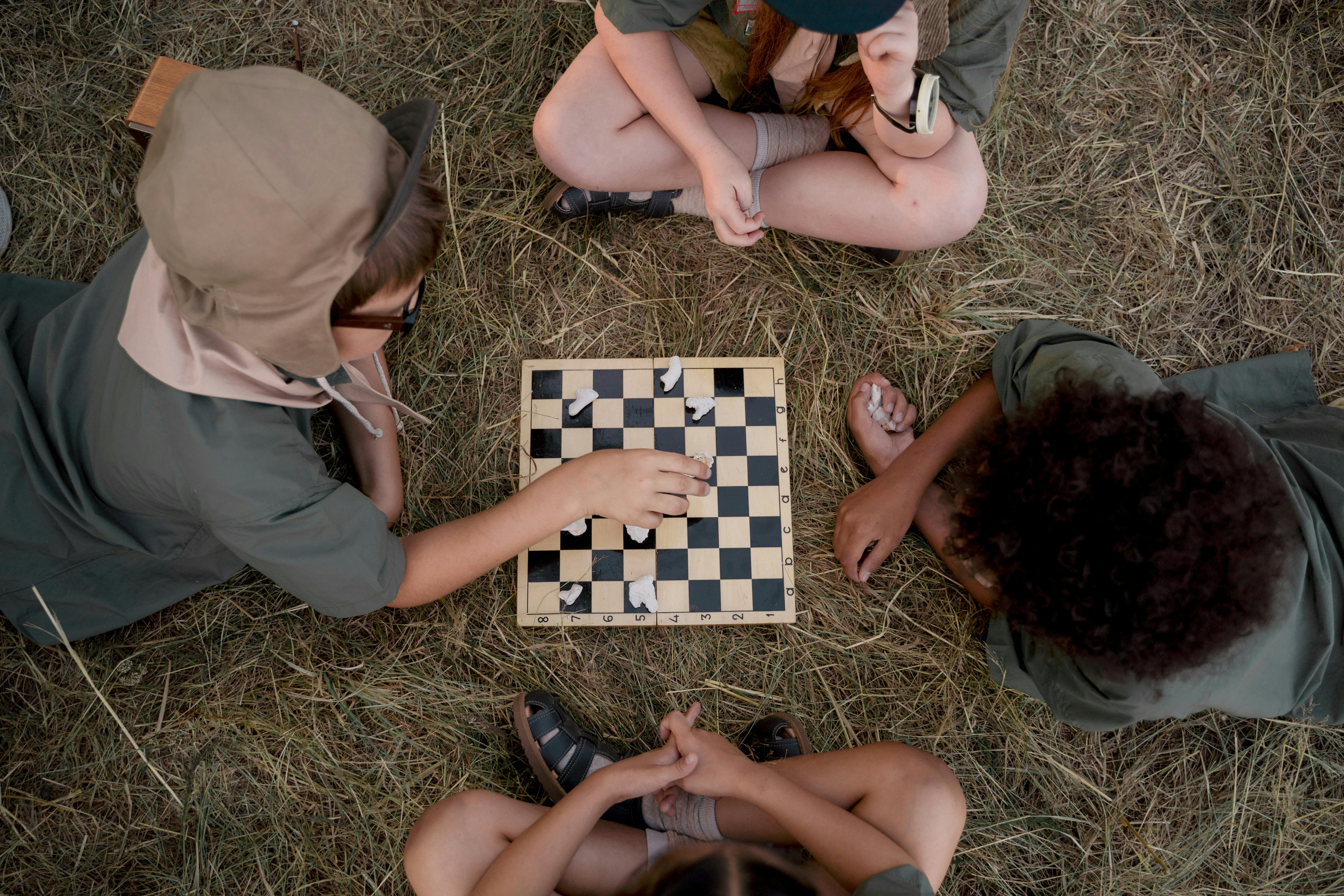I haven't played poker yet. My ordinary mind somehow associates poker with gambling even though it also acknowledges there's much skill in this game.
I've only watched poker matches, probably if I concentrate better, I may understand the intricate details of how it works.
Even the basics are not sticky enough to be retained by my mind. It's a problem of will and not much interest overall of the game itself.
Chess, that I've played on and off. I like the game because of the structured thinking it brings to my mind, often overriding the emotional flows that try influencing my decisions.
You have to think a couple of moves ahead, anticipating what the opponent could do and planning your response accordingly. And all of this is happening against the backdrop of a deterministic setting that provides a sense of control and predictability.
With poker, the backdrop is that of a probabilistic landscape, uncertainty reigns and the ability of managing incomplete information.
Unlike chess, where the board is fully visible and the outcome hinges solely on strategic choices, poker introduces randomness through what is called the shuffle and deal.
You can play perfectly and still lose due to a bad draw.
This probabilistic nature is why poker feels less intuitive to me. It demands comfort with ambiguity, which clashes with my preference for structure.
Why do I gravitate toward chess?
If you and your opponent play the same moves every time, the result will always be the same. It’s like a math equation: input A + B always equals C.
Thanks to randomness in poker, the cards you’re dealt are unpredictable, and having skill (betting strategy, reading opponents) does indeed influences the outcome, however chance also plays a significant role.
Probably Determined
I think one of the main reasons why both games are popular in terms of getting mainstream attention is because how applicable they are as a mental model/framework to view life itself.
Is life probabilistic or deterministic?
A simpler answer could be yes and no. But there's "or" in the question, which implies picking one over another.
How about think of it as a spectrum rather than an either/or choice?
On one end, you have situations with high control such as solving a math problem or following a recipe. Because of skill and logical thinking that dominate, these are chess territories.
Also, I’ve observed that the spectrum of control in life often depends on how much information and influence you have over a situation.
In chess-like scenarios, you tend to have more visibility and control over your actions, like when you’re building a piece of furniture. The outcome largely depends on your effort and decisions.
External factors such as other people’s choices, market trends, or even the flimsy weather introduces uncertainty in poker-like scenarios.
You can prepare, but you can’t control everything.
At least for me, this duality is why both games resonate, since they teach us to navigate life’s mix of certainty and chance.
On the other end, you have low-control situations. It's not necessarily under your control if your joke lands well at a party, for example.
These are poker territories where you manage probabilities and adapt to whatever cards you're dealt.
Square Peg In A Round Hole
In terms of process and outcome, I feel that chess is overly straightforward.
Chess feels like a debate where the better argument wins. Poker feels like a negotiation where you’re never sure who’s holding what.
Life rarely gives you a clear board like chess. More often, you’re playing poker, making decisions with incomplete information, hoping your read on the situation is right.
Most of life happens somewhere in the middle, hence a spectrum we move back and forth based on the context and variables at play.
I think that at least removes much of the either or mentality with the rigid need to control everything or surrender entirely to chance.
Here's an interesting observation that's not hard to notice.
It’s people (myself included) tend to get frustrated when they apply chess thinking to poker situations - trying to control what can't be controlled - or poker thinking to chess situations - leaving to chance what they could actually influence through skill and preparation.
*Thanks for reading!! Share your thoughts below on the comments.
